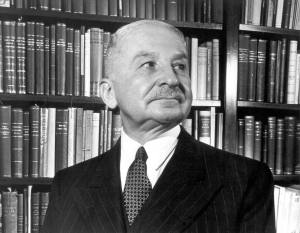Lazy Man’s Guide to Ludwig von Mises and His Contributions
“A society that chooses between capitalism and socialism does not choose between two social systems; it chooses between social cooperation and the disintegration of society. Socialism: is not an alternative to capitalism; it is an alternative to any system under which men can live as human beings.” – Mises
From Monty Pelerin’s world
The name Ludwig von Mises is synonymous with classical liberalism. He was an unrepentant champion of freedom and free markets. His beliefs, unlike so many of us,  were not something he inherited from his parents or society. Many he obtained from others, but many he was the original developer using his incredibly strong and fertile mind. He was unique in the sense that he truly added to the body of knowledge.
were not something he inherited from his parents or society. Many he obtained from others, but many he was the original developer using his incredibly strong and fertile mind. He was unique in the sense that he truly added to the body of knowledge.
His ideas were not popular amongst the ruling class and the institutions they controlled, like academia. In our slide towards socialism, how popular might the political elite consider statements like the following?
“A society that chooses between capitalism and socialism does not choose between two social systems; it chooses between social cooperation and the disintegration of society. Socialism: is not an alternative to capitalism; it is an alternative to any system under which men can live as human beings.”
 Mises’ uncompromising commitment to what he considered to be the truth resulted in this great man living in relative obscurity during much of his lifetime. He sacrificed prestige and income to stay true to his beliefs. Contrary to the poseurs that proclaim to be economists but are little more than prostitutes for the State, Mises never deviated from his truths.
Mises’ uncompromising commitment to what he considered to be the truth resulted in this great man living in relative obscurity during much of his lifetime. He sacrificed prestige and income to stay true to his beliefs. Contrary to the poseurs that proclaim to be economists but are little more than prostitutes for the State, Mises never deviated from his truths.
His understanding of economics was complete. Yet his view of the future was not hopeful. In order to preserve society, it was necessary for the people to understand economics. On this matter, he commented:
“Is the attempt to guide the people on the right road not hopeless, especially when we recognize that men like John Maynard Keynes, Bertrand Russell, Harold Laski and Albert Einstein could not comprehend economic problems?”
Tragically, here was a man who could see the implications of various acts, laws and policies decades before others and lived with the knowledge that these actions could only result in societal destruction. In his autobiography, he wrote, in what must have been an especially sad moment:
“My theories explain, but cannot slow the decline of a great civilization. I set out to be a reformer, but only became the historian of decline.”
Nowhere was his prescience as clear as his views on central banking. Almost 100 years ago, he laid out the fallacies in central banking and how these institutions would destroy the economies they were supposed to serve. He also foresaw major wars and the Great Depression.
For Mises, economics was not some narrow realm of prices and market transactions. It was the realm of all of all human behavior, the very substance of society:
“Only he who fully understands economic theory can comprehend the great questions of economic and social policy.”
Mises, based upon his solid theoretical framework, was prescient on many historical events and trends. He was truly a giant of the 20th Century. Mises, not Friedman or Keynes, was the greatest economist of his time.
An audio by Ivan Pongracic is a painless way to learn about Mises and what Pongracic considers his five greatest contributions.
Help Make A Difference By Sharing These Articles On Facebook, Twitter And Elsewhere:
